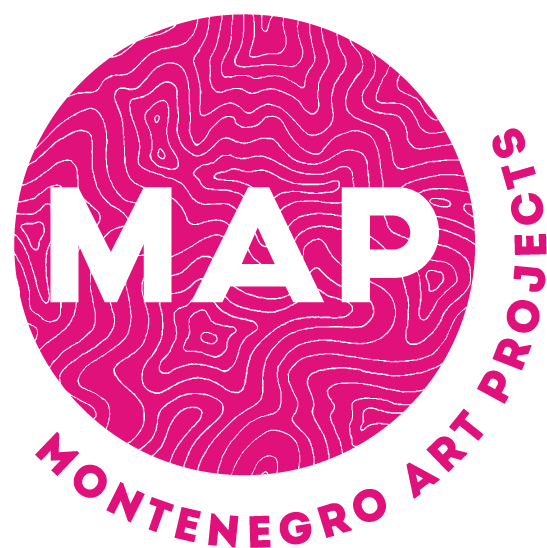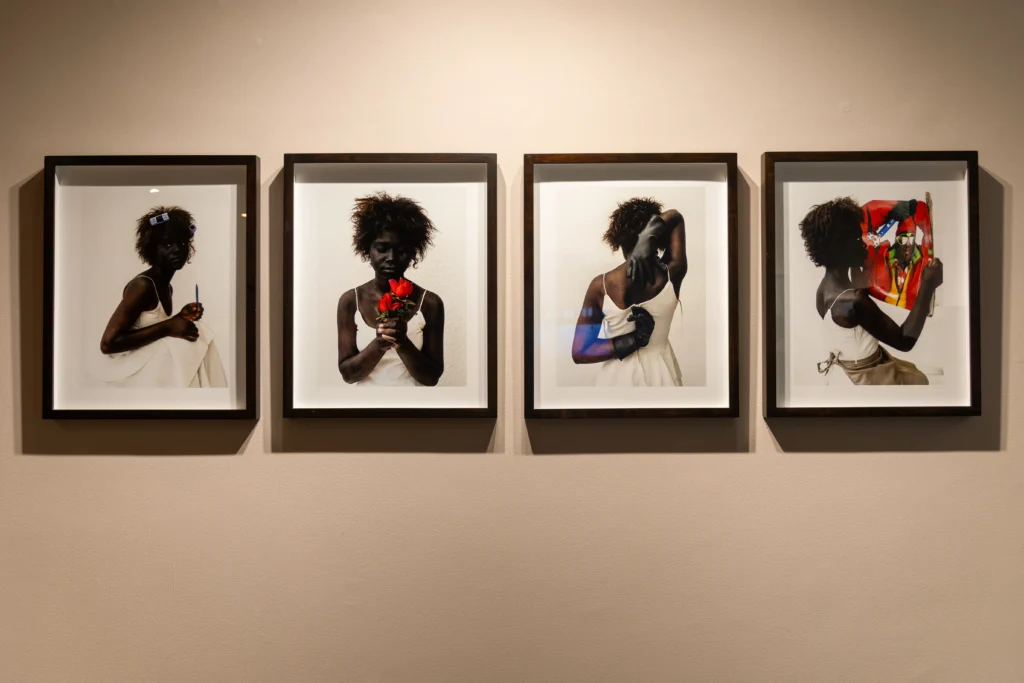Astrid González
Astrid Gonzalez es una artista nacida en Medellín, Colombia. Egresada con grado de honor en Artes plásticas de la Fundación Universitaria Bellas Artes en Medellín, se encuentra cursando la Maestría en Gestión y Producción cultural y audiovisual en la Fundación Universidad de Bogotá Jorge Tadeo Lozano. Mediante el uso del video, la fotografía y la escultura realiza reflexiones acerca de los procesos históricos de las comunidades afrodescendientes en América. Debido al uso de la investigación como base de sus trabajos artísticos obtuvo una beca para estudiar el Certificado de estudios afrolatinoamericanos, dirigido por A.L.A.R.I. en la Universidad de Harvard. Su obra ha sido expuesta en Sudáfrica, Alemania, Senegal, Brasil, Chile, Perú, Angola, Lisboa y Colombia, recientemente en la Pinacoteca, São Paulo; Museo de Arte Moderno de Medellín; y en el Museo de Antioquia. Ha sido reconocida con el premio Seed Award de Prince Claus Fund, Países Bajos 2024. Y obtuvo en el 2023 la beca The Democracy Machine: Artists and Self-Governance in the Digital Age Fellow, otorgada por Eyebeam, Nueva York.
A partir de la revisión a la “historia universal” realiza un estudio de las realidades afrodescendientes en el contexto colonial, del nacimiento y consolidación de comunidades cimarronas, y finalmente, en los procesos de blanqueamiento como el paradigma del progreso y del mestizaje de las Américas.
Con la fotografía, el vídeo y la escultura como lenguajes plásticos, manifiesta reflexiones estéticas y críticas sobre el cuerpo del afrodescendiente que ha sido representado desde el siglo XVI hasta el presente. Cuerpos como campos en los que luchan significados y discursos del racismo, la invisibilización, el intercambio cultural y las batallas políticas en el reconocimiento étnico como estrategia de orgullo ancestral.
Astrid Gonzalez is an artist born in Medellín, Colombia. She graduated with honors in Fine Arts from the Bellas Artes University Foundation in Medellín. She is currently pursuing a Master’s degree in Cultural and Audiovisual Management and Production at the Jorge Tadeo Lozano University of Bogotá Foundation. Through the use of video, photography, and sculpture, she reflects on the historical processes of Afro-descendant communities in the Americas. Thanks to her use of research as the basis of her artistic work, she was awarded a scholarship to study for the Afro-Latin American Studies Certificate, directed by A.L.A.R.I. at Harvard University. Her work has been exhibited in South Africa, Germany, Senegal, Brazil, Chile, Peru, Angola, Lisbon, and Colombia, most recently at the Pinacoteca in São Paulo; the Museum of Modern Art in Medellín; and the Museum of Antioquia. She has been recognized with the 2024 Seed Award from the Prince Claus Fund, Netherlands. In 2023, she received the The Democracy Machine: Artists and Self-Governance in the Digital Age Fellowship from Eyebeam, New York.
Based on a review of “universal history,” she studies Afro-descendant realities in the colonial context, the birth and consolidation of maroon communities, and finally, the processes of whitening as the paradigm of progress and mestizaje in the Americas.
Using photography, video, and sculpture as visual languages, she expresses aesthetic and critical reflections on the Afro-descendant body, which has been represented from the 16th century to the present. Bodies as fields in which meanings and discourses of racism, invisibility, cultural exchange, and political battles struggle over ethnic recognition as a strategy of ancestral pride.
CV
No English video available.


